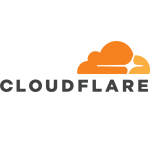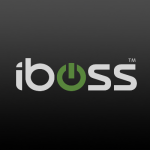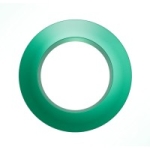What is our primary use case?
We use Cisco Umbrella to secure our gateway. All of the DNS forwarding coming out of the company from any site or all the DNS requests are forwarded through Cisco Umbrella, and then they determine if that is a safe address and if the content coming back is safe. They will either reject the addressing out of hand, or they'll look at the Layer 7 content and reject that from making it back to us.
We are using the Secure Internet Gateway (SIG) Advantage package. In terms of deployment, effectively, it's deployed from our private cloud. It's in our data closet on our servers.
How has it helped my organization?
It enables us to finally allow laptops to be used as workstations and allow data to leave the building. In the past, laptops were only used for VPN access, but they would connect back to their data inside the company. This has allowed us to have a level of confidence that they're protected as if they were behind our firewall. So, now, we've got work-from-home people who literally have their workstations with them.
We have six sites with 60 to 70 users. The baseline configuration allows for additional protection for any DNS requests as they leave those sites, and then the secondary policy is for the mobile devices as they leave the premises. When they're connected to public WiFi, they have an additional policy that kicks in for that time that they're not connected back to the company. So, when they're on public WiFi without a VPN, the tool will actually put that second policy in place that's more aggressive and offers a higher level of protection when it's not sitting behind the firewall. All that is automated. It's all built into the agent.
We don't allow WiFi inside of our network for connection to our actual business network. As soon as a device is docked, it disables WiFi on that mobile device.
What is most valuable?
When we have laptops that leave the building, they could connect to public WiFi before they establish a VPN connection back into the company. For that duration or that period of time when they're not docked in the network or on a VPN, they effectively don't have that full layer of security that I provide inside the building. This tool stands in during that period of time, and we extend the security settings through their basic firewall or their cloud-based firewall at that time. So, we do content filtering and control access, but they also are looking at new domains, IP addresses, and bad requests. They're blocking them on my behalf when a laptop is not sitting behind our security appliances.
What needs improvement?
There are a couple of interface issues. I know that they say that there are feature enhancements that are noted. For example, we've got the Cisco Meraki security appliances, and there, we geofence our company to where we're allowed to send and receive traffic. So, in our case, by default, we only allow traffic to six different countries, which allows us to effectively prevent traffic for the majority of bad players in the world, but they don't give you an easy way to do that in Cisco Umbrella. With Cisco Meraki, I can specify or pick the countries. I can say that I want to only allow traffic from these six countries, and I'm done. With Cisco Umbrella, I have to rely on the fact that they're going to prevent traffic to other countries. They're going to decide if it's good or bad. I can't geofence out. I can plot top-level domains, but .com and .net go global. I can certainly block a China (CN) or a Russia (RU) domain, but that doesn't give me the same level of granularity.
Apparently, Cisco Umbrella has got that as a feature request to allow an administrator to say, "I specifically only want traffic to and from these countries. Everything else should be dumped." That way, when they're sitting behind my network or they go out in the wild, they have that same level of traffic being blocked.
Buyer's Guide
Cisco Umbrella
February 2026
Learn what your peers think about Cisco Umbrella. Get advice and tips from experienced pros sharing their opinions. Updated: February 2026.
881,757 professionals have used our research since 2012.
For how long have I used the solution?
I have been using it for 14 to 15 years.
What do I think about the stability of the solution?
We've had no issues. It has done exactly what it's supposed to do.
What do I think about the scalability of the solution?
It is cloud-based. So, scalability should not be an issue.
Any increase in its usage is all relative to the growth of our staff. Currently, we deploy the laptops for people who need to work from home or are traveling between the banks. That's roughly about 20% of our total staff. Some people aren't going to be working from home, and some of their jobs can't be done from home. They have no need for mobile devices. If there is a need to work from home, its usage will increase. It is there if we need it to scale, but at this point, it is not scheduled to change.
How are customer service and support?
Once I became a paying customer, it was much better. The preliminary training is there, but when you get into the nuances and the details of some of its capabilities, you need to talk to tech support. Once you're a paid customer, you get direct access, and then it's good. When I'm able to get a hold of them, their technical support is a 10 out of 10.
How would you rate customer service and support?
Which solution did I use previously and why did I switch?
I didn't use any similar solution previously.
How was the initial setup?
I was a hundred percent involved in its deployment. We had a couple of issues. The proof of concept was done without a lot of planning. So, there were some mistakes made along the way. If I was doing it again the second time, I wouldn't make the same mistakes.
The default configurations have your baselines. Those are never supposed to get changed, and I changed and tweaked those for our proof of concept. After a couple of weeks, I had some additional guidance from the Cisco Umbrella team. You leave the baseline configuration, and then you clone and create a new configuration that sits in front of it. So, everyone gets the baseline, and you don't change that. If you want to change it, you make a new policy and then make the changes to that. If you change the baseline default policy and you make a mistake in it, you've to back that all out. If you make it in the new policy, in the worst case, you just delete it, and automatically everyone goes back to baseline. So, there's still a policy in effect. That was a training issue that should have been resolved. Now that I've done it, if somebody asks me, I would say that this is the way you've got to do it.
What about the implementation team?
It was just me taking care of its deployment. In terms of maintenance, once it's configured, unless you're retweaking and adding or removing something that was blocked, it pretty much runs itself.
What was our ROI?
I have less maintenance to resolve, fix, and reconfigure VPN clients personally, and the feedback from the end-users is that they're more productive.
What's my experience with pricing, setup cost, and licensing?
We were using the free version, and we implemented the paid version about two months ago.
I'm paying a fair price, but everything is negotiable with Cisco. One of the benefits that I got by having Cisco Umbrella is the licensing of the Cisco AnyConnect VPN client. There has always been an issue for years and years with Cisco Meraki in terms of VPN clients and using the native built-in Windows client. It keeps reconfiguring itself. By using Cisco AnyConnect as the VPN client, it's not affected by Windows patching or people typing in passwords by mistake. It's more resilient and doesn't change. With just Meraki solution, there was an extra expense for the Cisco AnyConnect VPN client. By having Cisco Umbrella, that licensing is now included.
Which other solutions did I evaluate?
There were a couple of other options, and I discussed them with another consultant. As a regulated industry, we have to do vendor management, and vendors have to be vetted. So, Cisco was already a vetted vendor. There are other companies that do the same thing, but Cisco didn't require me to do any more vetting. They were already a vendor.
What other advice do I have?
When it's configured the way it's supposed to work, it turns itself on and off based on the status of the VPN or the dock condition. Once it's configured, it does exactly what it's supposed to do.
If you're doing a proof of concept on it, fully understand how the policies are configured and what the flow is. You should understand the hierarchical status of the policies to configure it right the first time. You don't really want to guess it.
I would rate it a 10 out of 10.
Which deployment model are you using for this solution?
Private Cloud
Disclosure: My company does not have a business relationship with this vendor other than being a customer.

















